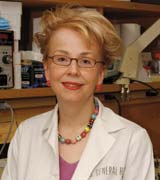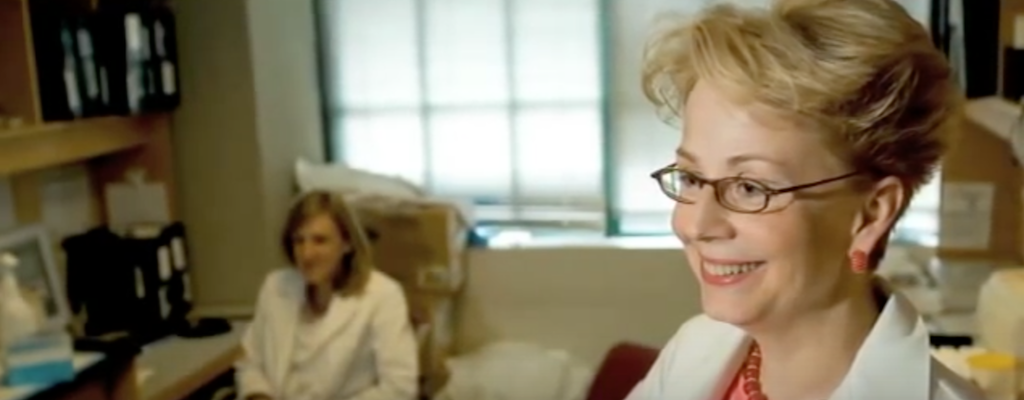Curing Type 1 Diabetes: An Interview with Dr. Faustman
Editor’s Note: At the 2018 ADA Conference, Massachusetts General Hospital (MGH) researchers released new findings on their Bacillus Calmette–Guérin (BCG) vaccine trials. Six years after publishing the Phase I of clinical trials results that didn’t show benefits, researchers report on new follow-up data, collected eight years after the initial trial. The longer-term data suggests that the vaccine does lower blood sugar in people with type 1 diabetes but it takes several years to have an effect. Read more here.
Beyond Type 1 recently spoke with Dr. Faustman about conducting her research and the main takeaways of her efforts to make a difference in the world of diabetes. Find out about the research she’s willing to bet her career on!
Make a Plan
The trial, which is in phase II, is set to go on for about five years.
“It’s a big trial,” Dr. Faustman says. “It’s a 150-cohort trial, randomized 2-1, so two people get the vaccine, and one person is the placebo. And it’s a long trial —it’s a five-year-long trial. Why do we go five years? The endpoint of the trial is a tough endpoint that is hard to achieve: it’s a decrease in hemoglobin A1C greater than 10 percent. We’re looking for a clinical effect that is also a therapeutic effect.”

Think Outside the Box
“Nobody sought out people with five years, 10 years, 15 years [of living with diabetes] for these kinds of immuno-intervention trials,” Dr. Faustman says.
“This is one of the rare trials of the world where we don’t think we need to intervene at the moment you end up in the emergency room with new onset type 1 diabetes. This trial is aiming to achieve a novel and safe intervention for people with type 1 diabetes. People who have diabetes look at the landscape and see that everybody is only trying these interventions in recent onsets, and they turn around and think, ‘What about me? There’s a lot of new pumps, a lot of new meters, but what about the innovation that could change the course of this disease, not mechanical innovation?’
[Our] trials are unique in that we’re using a 100-year-old safe vaccine and also targeting the intervention first to people with long-term diabetes.”
Dare to Take Risks
“The hardest thing to do, as a scientist, is to say, ‘I know the data. I know the strengths of the data. And guess what? I’m gonna bet my career on this because I know the data.’
Significant innovation probably does not translate because people don’t believe the data’s strong enough. What we can say for certain with BCG is it is a rare immune intervention where the pre-clinical data consistently shows the same benefit, as well as the same benefit in late stages of type 1 diabetes in mice. Globally, other research and clinical translation groups are showing a marked benefit of BCG in other autoimmune diseases such as multiple sclerosis.
It is a risky career pathway to take basic science and perform clinical trials. This is why we are moving forward on this—even though it serves a big community of people that haven’t been served before. We’re using a 100-year-old generic drug that’s safe and that’s being repurposed, decreasing the chances of failure even with this innovative approach.”
Stick to a Budget
“Our trial costs compared to a for-profit drug trial are about 1/3 of the cost. In all these trials, as far as a typical type 1 diabetes trial, [the main cost is] recruitment, because you’re looking for new onsets: children who just were diagnosed with type 1 diabetes.
[Our main cost is] the duration of the trial. Our trials go for a long time. Also, our trials needed a new source of FDA-approved BCG between phase I and phase II, and a drug re-manufactured with FDA standards was a huge undertaking, but it turned out successfully. We have different costs, but we’re still much lower than the typical trial cost.”
Connect with People
Dr. Faustman interacts directly with the study participants.
“We do glucagon stimulation test, so an M.D. has to push the drug, and we have to administer the vaccine or the placebo, so we’re interacting with these people quite a bit. We see over 30 patients a week. All of us on this study protocol enjoy interacting with our subjects for about 45 minutes, so I’m pretty connected with these people and they’re connected with me: ‘I should have treated my blood sugar differently.’ Or, ‘When is my next appointment?’ Or, ‘I’m getting married, how do I coordinate this?’”
In addition to interacting with patients who are participating in the trial, Dr. Faustman also shares her work with researchers from around the world.
“This October in Athens, Greece, we’re bringing together the 22 research groups that are all using BCG in clinical trials for autoimmunity and allergies. A philanthropist from South Africa who has children with diabetes thought the best thing he could do for the diabetes community would be to connect people, whether they’re doing BCG trials for allergies, or BCG trials for multiple sclerosis, or BCG trials for infection prevention, about every 18 months. That’s been really helpful.
Ask for Support
How can the diabetes community support the trial? We want to know!
“Thank you for asking! They can go to the website and register to get our email updates. They can donate (our most common donation is $10, so don’t be intimidated!) and also get registered so if we have progress, we can reach out,” says Dr. Faustman.
“Some people are highly critical of taking a generic drug and moving forward. What’s totally rewarding is the public voting for this — this is what they want. There are so many projects in different stages of development, [it’s difficult to] appreciate what people with diabetes want. They want something that’s affordable, and they want something for people that have the disease.”
 Donate to Beyond Type 1 to invest in a better life for people with type 1 diabetes!
Donate to Beyond Type 1 to invest in a better life for people with type 1 diabetes!





